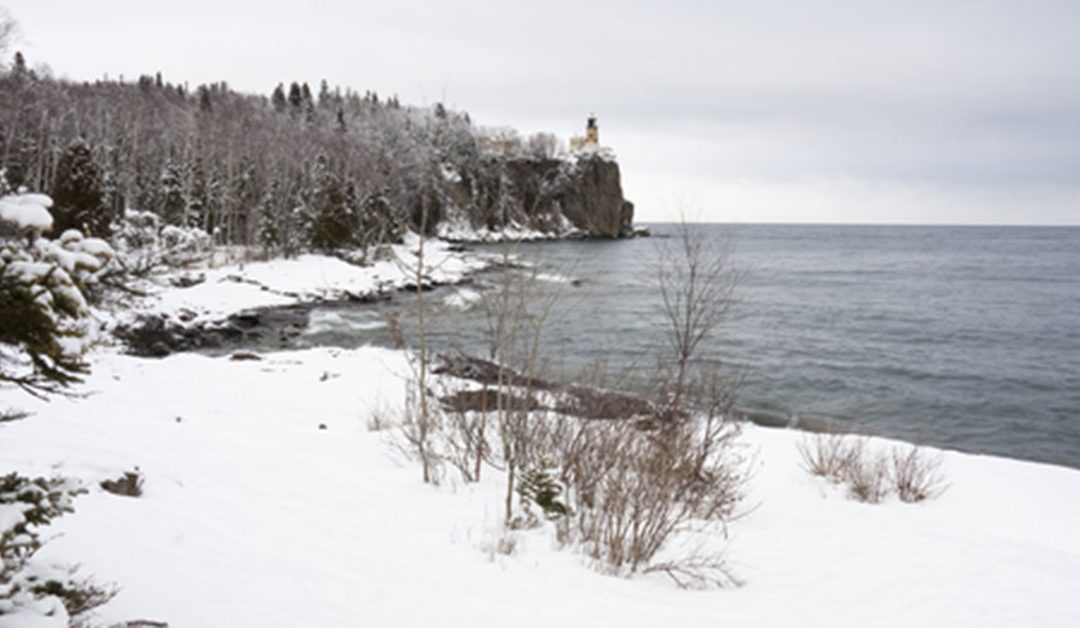Many who live in the Great Lakes region see the lakes as not only a source of pride and beauty but as a fundamental part of the area’s ecosystem and economic prosperity worthy of careful consideration and protection.
To limit the impact of extreme weather events and flooding on the Great Lakes, the Community Foundation of Marquette County has joined four other community foundations in the region surrounding Lake Superior — Houghton, Menominee, Les Cheneaux, Michigan, and Duluth, Minnesota — to participate in the Resilient Future Project as part of the regional Great Lakes One Water Partnership.
“For long-term resiliency, from an economic development, quality of life standpoint, we’ve got to make sure that we’re not impacting water quality and well-being in our Great Lakes coastal communities,” said Brad Neumann of Michigan State University Extension, who has been hired to work with agencies on the project in the region.
The project aims to respond to stormwater issues in the region by building networks of local and regional leaders to “identify and implement strategies to better prepare for severe storm events,” while furthering general public education and awareness, officials said.
“The focus is really on stormwater, addressing stormwater and coastal storm impacts; the Father’s Day flood in Houghton really made that clear, at least from a stormwater runoff angle,” Neumann said. “So a lot of the focus for us will be on finding ways and policies to implement green infrastructure techniques and approaches and creating more resilient coastal shorelines in the event of our storms.”
This is part of a “basin-wide” project involving 31 shoreline communities, Community Foundation of Marquette County CEO Gail Anthony said, noting that there are five more regional teams of community foundations throughout the Great Lakes region that are carrying out similar work as part of the Great Lakes One Water Partnership.
The project in the Lake Superior region is a collaboration amongst the Community Foundation of Marquette County, together with the Community Foundation of the Upper Peninsula and Delta County, Duluth Superior Area Community Foundation, Keweenaw Community Foundation, and the M&M Area Community Foundation.
To begin the effort, the community foundations have secured a $300,000 seed grant from the Great Lakes Protection Fund, Ralph Wilson Foundation and Kresge Foundation, as well as a $200,000 match, Anthony said.
It made sense for the community foundation to get involved when the Council of Michigan Foundations sought to partner with local community foundations in the project, Anthony said, as the foundations aim to invest in long-term projects that will offer lasting benefits.
“Community foundations are involved because there’s a natural leadership there (through) asset management skills and community-based missions of community foundations,” she said.
Through the Resilient Future project in the Lake Superior Region, the aim is to “establish a region-wide commitment to resilience” by working with experts from the University of Minnesota Sea Grant Program, Michigan State University Extension, Michigan Sea Grant, and Superior Watershed Partnership and Land Trust, organizers said.
The experts involved will help the communities assess their current resilience and identify strategies to improve resilience as it pertains to stormwater. They aim to build a resiliency plan to handle issues with stormwater by engaging the community in a conversation, Neumann said.
“Through a series of interviews, focus groups and public meetings, we want to build a process where each community essentially has their own resiliency plan,” Neumann said. “And those plans would have municipal actions identified but also actions that private individuals or businesses could take in helping to make the community more resilient.”
Local community leadership teams will help organizers “understand the local circumstances and the local culture around this issue, and reach out to ‘key stakeholders,’ so the approaches in each place will be tailored to a community’s needs and goals,” Neumann said.
“Each community that we’re working with is in a different place, every community is at a different level of involvement in their resiliency plans or their policies,” Anthony said. “It is the intent of the committee that we meet the municipalities or the cities or whoever we’re working with where they are. Some are advanced, some have been working in this space for a long time; others are just starting to think about it. So it’s our intent to respect where they are and move forward from there.”
Public, private and nonprofit involvement is sought for the project, they said.
“We want to engage government and private and nonprofit in these community conversations because all have opportunities for helping to improve the overall resiliency of the community,” Neumann said.
Later on in the process, five additional communities will be identified to make up the project’s second cohort; organizers hope this will result in 10 examples for other communities to “learn from and replicate this approach,” Neumann said.
Overall, organizers look forward to carrying out the four-year project, building partnerships and improving resilience in local communities to protect the waters of the Great Lakes.
For more information on the community foundation or the project, visit cfofmc.org.
Read more at: http://www.miningjournal.net/news/front-page-news/2019/02/looking-to-the-future

